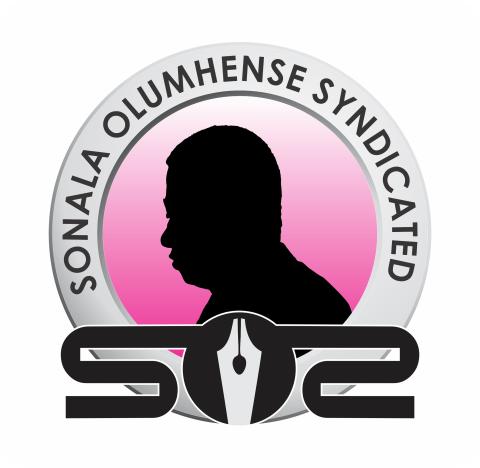
It is important to say a few things about the context of Nigeria’s screaming headlines concerning corruption “revelations.”

One: these tantalizing headlines do not constitute a war against corruption in Nigeria. The war, should there be one, will be declared and led by President Muhammadu Buhari, for the simple reason that he declared that to be his principal mission. He has not begun one.
Two: the war will be guided by the law, which may include amendments and/or additions to our existing legal codes, as determined by the National Assembly. To the best of my knowledge, President Buhari has yet to send any bills to the legislature or indicated how he intends to prosecute his war.
Three: the National Security Adviser (NSA) comprises neither Nigeria, nor the Nigerian government, nor the terrain of a Nigeria war on corruption.
Four: there is no such establishment as the office of the National Security Adviser, sometimes referred to as ONSA. Anyone who says, writes, or implies such an office does so out of ignorance or mischief. The constitution of the Federal Republic of Nigeria provides only for a National Security Adviser. He or she advises the President on security matters, and serves on the National Security Council. He or she is an officer who is an official, but not a department or a security service, or an office, or the monstrously-powerful creature of the Goodluck Jonathan era.
Five: Nigeria’s budget history, as I have previously explored in this column, suggests that in the past few years, the NSA blossomed from the national security domain into prominence as a major economic and political player. From a budget of just N15.5 billion in 2006, the NSA got N185b in 2010; N109.8b in 2011; N123.4b in 2012; N115.5b in 2013; and N117.7b in 2014.
Six: while these funds have yet to be accounted for, former Finance Minister Ngozi Okonjo-Iweala has now confirmed that she also found rhyme and reason for paying some of the recovered Sani Abacha loot to Sambo Dasuki, who occupied that office in the past few years, allegedly also for security purposes.
Seven: this means that as the NSA grew more powerful, he could pry funds even from the fingers of Okonjo-Iweala, who was reputed to be difficult to separate even from approved subheads.
Eight: Dasuki as NSA, the federal government now alleges in court, was so awash in cash that he disbursed widely and wildly: for election activities, for prayers, for publicity, for power, for pleasure.
Nine: while allowing for Dasuki as NSA all of the legal rights to self-defence, what has so far been confirmed by the man himself, by Okonjo-Iweala and by several of the lucky Nigerians who benefitted from the ‘Dasuki 24-Hour ATM’ shows a pattern of recklessness.
Ten: bigger headlines are in the forecast. For instance, the Abacha loot in reference: how much was there when Dasuki received Okonjo-Iweala’s bank alert? How much was there when she took office…and when Jonathan took office? How much was there when the account was first opened, how has it been managed since then, and who else has benefitted from it? I have written about the Abacha loot in the past, and it is clear that you cannot deal in isolation with what Okonjo-Iweala transferred to one man, whoever that is.
Eleven: during the run-in to the presidential election earlier this year, there were several credible reports of traditional rulers and religious leaders, among others, being given large sums of money. Some of those funds are now being traced to the NSA, meaning that both the president and the NSA were investing in themselves rather than in the business of national security.
Twelve: if this line of enquiry is to be pursued for a mile or two, it is inescapable that some burial grounds will be dug up, and some startling corpses unearthed. For instance, former President Olusegun Obasanjo’s expensive third-term ambition provided a lot of funds to members of the National Assembly that forms part of the background to Jonathan’s election spending. With that background, what do we do with the major reports in the executive and the federal legislature that were never implemented?
Thirteen: a lot of Nigeria’s funds that have been misappropriated came from petroleum, the sub-sector that President Buhari now heads. That sector also has many big reports that have yet to be implemented, if only to establish a basis for moving forward. Towards establishing such a baseline, where would Buhari begin, given that Obasanjo headed the same Ministry for half of the last 16 years?
Fourteen: it is clear that forthcoming headlines will be as big, if not bigger, than the NSA, and that the NSA is only part of the corruption investigation. Still the NSA—the institution, not the man—has clearly been corrupted (no pun intended) and compromised. .
Fifteen: then there is the presidency, and what is emerging is the picture of a government where the people received large helpings of Transformation Agenda preaching while governance comprised the distribution and manipulation of federal funds, including international transfers in seedy private jets. If the emerging picture stays consistent, how long can former President Jonathan avoid jail?
Sixteen: if you belong to a family that has lost a soldier to Boko Haram in the past few years, it is difficult not to feel a sense of betrayal that your loved one might not have died had key government officials patriotically ensured that the military had the equipment and services they needed. And then you realize that by the same token, Nigerians all over the country have also continued to live sad lives, and died sadder deaths.
Seventeen: yes, the headlines will grow bigger. So will the denials and denunciations from those who are surprised that not only are the supply lines to inordinate wealth and privilege being cut off, the roads to Nigeria’s prisons are becoming better developed.
Eighteen: the headlines will grow bigger, and “revelations” larger. In one of the world’s bastions of corruption, so should they. Hopefully, every kobo that can be traced will be traced, and taken. Every property that was illegitimately obtained will be regained and converted into public use, or sold.
Nineteen: the headlines will grow larger, but they should not simply be the sensational stories of official investigations. The Nigerian people know who looted their commonwealth, and they know where the thieves buried the treasures. It remains for the press to shed its image of complicity and regain its voice by finding and publishing those stories, and by doing so, dragging the security agencies to what they might be neglecting.
Twenty: President Buhari, when he leads his war, can make things much easier for the country by setting free the whistle of the whistleblower, and the reach of an octopus Ombudsman with many eyes.
The headlines grow larger. But not only must they be fair and legal, they must be productive--or the war is simply theatre.
• [email protected]
• Twitter: @SonalaOlumhense